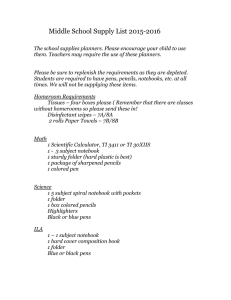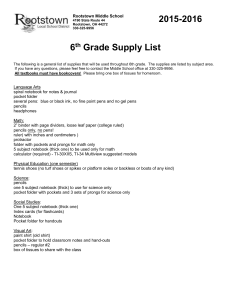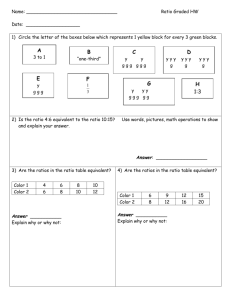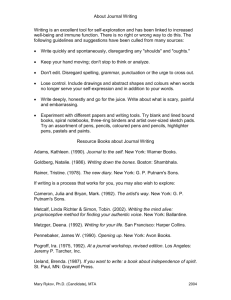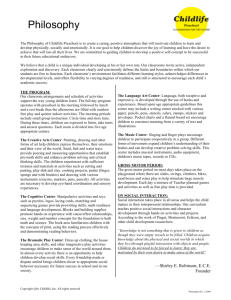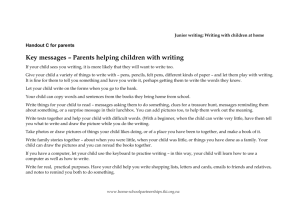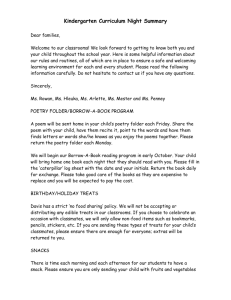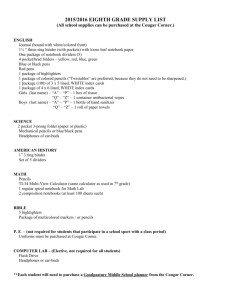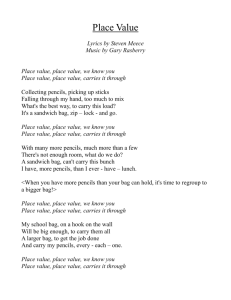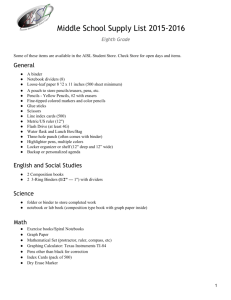Lesson: Be prepared for Class
advertisement
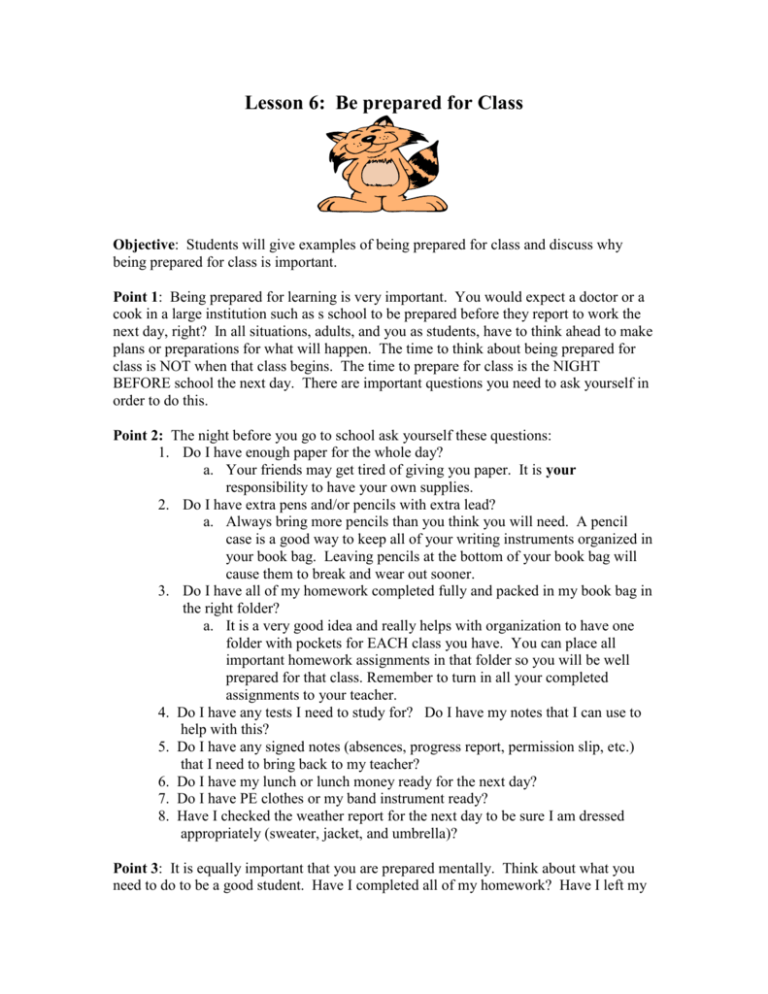
Lesson 6: Be prepared for Class Objective: Students will give examples of being prepared for class and discuss why being prepared for class is important. Point 1: Being prepared for learning is very important. You would expect a doctor or a cook in a large institution such as s school to be prepared before they report to work the next day, right? In all situations, adults, and you as students, have to think ahead to make plans or preparations for what will happen. The time to think about being prepared for class is NOT when that class begins. The time to prepare for class is the NIGHT BEFORE school the next day. There are important questions you need to ask yourself in order to do this. Point 2: The night before you go to school ask yourself these questions: 1. Do I have enough paper for the whole day? a. Your friends may get tired of giving you paper. It is your responsibility to have your own supplies. 2. Do I have extra pens and/or pencils with extra lead? a. Always bring more pencils than you think you will need. A pencil case is a good way to keep all of your writing instruments organized in your book bag. Leaving pencils at the bottom of your book bag will cause them to break and wear out sooner. 3. Do I have all of my homework completed fully and packed in my book bag in the right folder? a. It is a very good idea and really helps with organization to have one folder with pockets for EACH class you have. You can place all important homework assignments in that folder so you will be well prepared for that class. Remember to turn in all your completed assignments to your teacher. 4. Do I have any tests I need to study for? Do I have my notes that I can use to help with this? 5. Do I have any signed notes (absences, progress report, permission slip, etc.) that I need to bring back to my teacher? 6. Do I have my lunch or lunch money ready for the next day? 7. Do I have PE clothes or my band instrument ready? 8. Have I checked the weather report for the next day to be sure I am dressed appropriately (sweater, jacket, and umbrella)? Point 3: It is equally important that you are prepared mentally. Think about what you need to do to be a good student. Have I completed all of my homework? Have I left my problems at home and can I spend my time thinking about and concentrating on school work? Am I looking for and following all of my teacher’s directions? Am I asking questions when I need help? Point 4: Have your materials where you can find them. You need easy access to your pencils, pens, paper, textbooks, homework, etc., in order to start class. You need to decide where you are going to put each of these items and be able to find them quickly when needed. Point 5: At the end of each class, take one minute to be sure you have packed up all of your materials and be sure you have what you need for the next class ready. Clean up your area including the floor around and under your desk/table. Double check to be sure you have written down your homework and other important information in your planner/agenda. This will help you when you prepare at home for tomorrow. Review questions: 1. List all the items you need to prepare the night before school the next day. 2. What do you need to do when you arrive in each class? 3. What do you need to do at the end of each class? 4. What are some possible items you need to bring to school EACH day besides homework?
